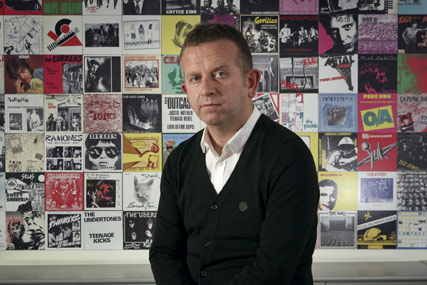I was jury chairman of the British Arrows this year, which was a real privilege, because I love film.
There’s been much talk over the last few years of falling creative standards in the UK, as reflected by our diminishing success in global awards schemes. A cynical point of view would highlight the introspective nature of some of these schemes, awarding work seemingly written just for juries. It’s difficult, however, not to be seduced by some of the fresh, media-restless work that’s being produced out there.
But, whilst we debate creative standards in the UK, the British public are still enthusing about what was on telly last night. They’re going around singing ‘Go compare’. Telly, in Britain, isn’t just here to stay, it’s growing in influence. Brits are now watching on average an astonishing four hours of TV a day, which has led to record commercial viewing.
And this, for me, is what makes an awards scheme like British Arrows not only relevant but important. We should be celebrating work created in our own back yard because it’s work that’s genuinely impacting on the country we live in.
This year’s jury had over 700 entries to judge. The advantage of watching so much work is you get a pretty good impression of what’s going on out there.
For example, there wasn’t a lot of comedy writing (and God knows this country needs a laugh at the moment).
There were two pastiches of the orgasm scene from ‘When Harry met Sally’ (apologies if you’re working on a third at the moment).
The jury spent far too much time having existential debates over multi-platform ideas, some of which weren’t even film-based.
And, if I’m going to be harsh, there wasn’t much genuine rule-breaking this year.
But if this year’s best films didn’t exactly move the medium on they certainly moved you. And this, for me, was the big theme of this year’s work; ‘emotional impact’.
Music played a big part.
A musical meeting of minds, in the shape of Match.com’s wonderful ‘Piano’. Muse’s cover of ‘Feeling Good’ driving Virgin Atlantic’s blissfully camp James Bond spoof.
A Billy Joel song invested the John Lewis film with extraordinary warmth and tenderness. Focus’ ‘Hocus Pocus’ propelling the brilliantly constructed Nike blockbuster ‘Write the future’.
But it was T-Mobile that took the big prize for the second year running with it’s spontaneous serenading of bemused airline passengers. Iggy Pop may have been reduced to selling insurance but ‘The Passenger’ never sounded so good as when the big baritone belts it out.
I’ve always gravitated towards films that engage with the heart over the head. This is why I think it’s been a very good year. And, make no mistake, it takes talent to get hairs on the back of your neck to stand to attention in the name of a brand. British advertising may have its critics, but when it comes to delivering emotional impact we still rock.


